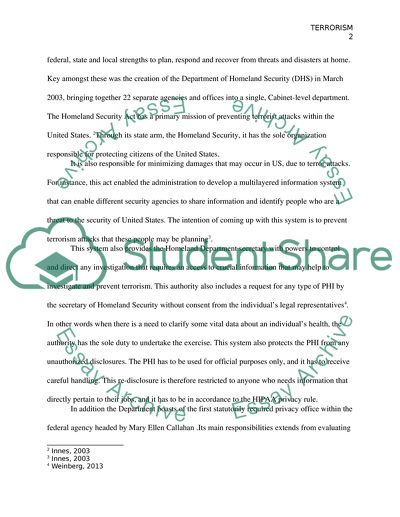Cite this document
(Americans' Attitudes to Homeland Security Term Paper, n.d.)
Americans' Attitudes to Homeland Security Term Paper. Retrieved from https://studentshare.org/politics/1840810-living-in-a-state-of-fear-and-terror-in-the-us-after-the-homeland-security-act
Americans' Attitudes to Homeland Security Term Paper. Retrieved from https://studentshare.org/politics/1840810-living-in-a-state-of-fear-and-terror-in-the-us-after-the-homeland-security-act
(Americans' Attitudes to Homeland Security Term Paper)
Americans' Attitudes to Homeland Security Term Paper. https://studentshare.org/politics/1840810-living-in-a-state-of-fear-and-terror-in-the-us-after-the-homeland-security-act.
Americans' Attitudes to Homeland Security Term Paper. https://studentshare.org/politics/1840810-living-in-a-state-of-fear-and-terror-in-the-us-after-the-homeland-security-act.
“Americans' Attitudes to Homeland Security Term Paper”, n.d. https://studentshare.org/politics/1840810-living-in-a-state-of-fear-and-terror-in-the-us-after-the-homeland-security-act.


